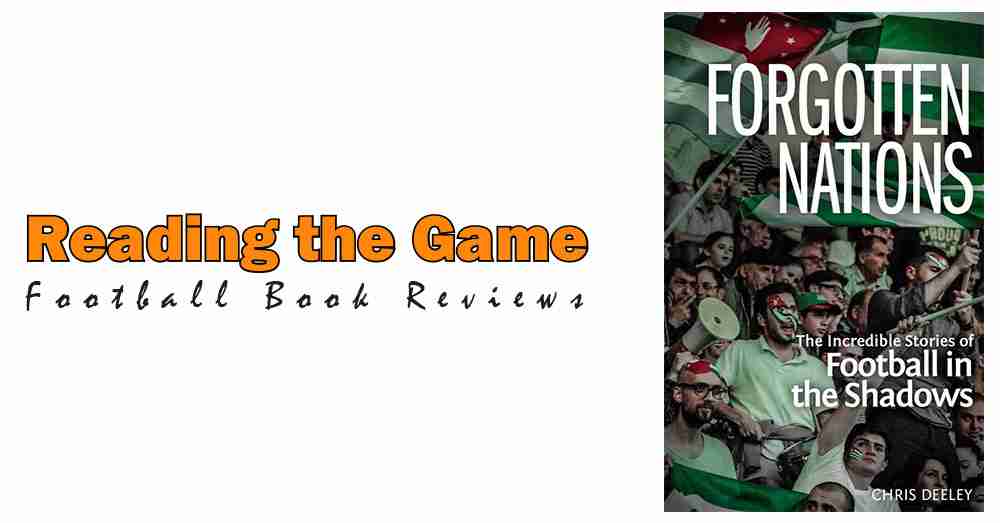There’s so much great football writing now that no reader, however voracious, can possibly read – or even know about – everything that’s out there. So it was with this week’s Reading The Game review. I won a copy of Forgotten Nations by Chris Deeley in a competition run on Twitter by My Football Books but, without that stroke of luck, this book would probably have passed me by completely. I said at the time it would ‘probably’ feature in this series so, here we go…
Forgotten Nations is a look at the world of what is known as ‘non-FIFA’ international football and specifically focused around the 2018 World Football Cup, held in London under the auspices of the Confederation of Independent Football Associations (CONIFA). CONIFA is an umbrella body for states, minorities, stateless peoples and regions unaffiliated with FIFA. The tournament was hosted by the Barawa Football Association, which represents the Somali diaspora in the UK and staged at 10 non-League grounds in London and the South-East, most of which had artificial pitches.
Forgotten Nations chronicles Deeley’s journey through the tournament’s relentless schedule – most teams were playing every day or two – and the ‘growing pains’ being experienced by CONIFA as they sought to grow their membership. This includes profiles of some of the member ‘nations’ including the bioregion of Cascadia, which includes Oregon, Washington State and British Columbia, the slightly problematic Italian region of Padania and Tibet, whose admission to the tournament created issues around sponsorship. Deeley also touches on CONIFA’s presence in the UK, which was growing at the time of publication; one chapter was entitled ‘Yorkshire – Why?’.
Now, this is a perfectly reasonable question and one which, having grown up in Egham, I’d also extend to International Surrey Football, who aren’t featured in the book but had been seeking CONIFA membership. It could be argued that Yorkshire is a region with a distinct identity and it is also so massive that even The FA had to split it into four Counties (specifically, the North, East and West Ridings, plus Sheffield & Hallamshire). So, I suppose you could put it into the same category as Cascadia. But Surrey?
Deeley writes in a light-hearted style which suggests that he doesn’t seek to take himself too seriously. Having said that, he also didn’t come across as patronising towards the teams or the event either. That’s a difficult balance to strike in writing, but Deeley pulls it off. Players, coaches and CONIFA officials all talk to the author and he shares their stories, weaving them into the narrative.
As a snapshot of the 2018 CONIFA World Football Cup, Forgotten Nations is excellent. It’s a fine examination of what it means to represent a nation or a community that otherwise might not have a global presence. However, the pandemic and the ever-changing politics of non-FIFA football haven’t been kind to this work. In addition to the 2020 tournament being cancelled, there has been a split within CONIFA, with some of the membership joining the World Unity Football Alliance (WUFA), either in addition to their place in the existing body or, in the case of Darfur and Surrey, instead of it. This is, in some respects, an example of history repeating itself, as Deeley explains in the book.
Football is the most political game in the world, so the shifting sands upon which both CONIFA and WUFA have been built should neither surprise anyone following this series, nor put them off reading this book. It’s an entertaining tale of an interesting tournament.
Forgotten Nations is published by Reading the Game stalwarts Pitch Publishing and you can ‘try before you buy’ at the Pitch website. It’s also available at my favourite independent football bookseller, Stanchion Books.
